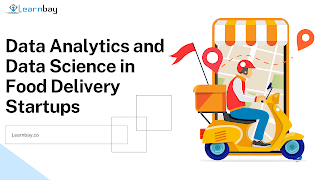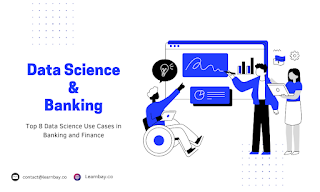Data Science – Improving The Efficiency Of The Pharmaceutical Sector
For those considering a degree in this field, the usage of data science in pharmaceutical organizations has significant consequences. The pharmaceutical business continuously uses important statistical data collected from numerous sources. Clinical research and the study of electronic medical information both involve data science. Strategies for data analysis are employed at every stage of the drug research and development process. Some data scientists assist in data analysis projects or work with electronic medical records. This is an interesting career choice because of the variety of tasks required. If you also want to make a career as a data scientist in the pharma domain, visit the latest data science course in Bangalore Now!
How does Big Pharma use data science?
The pharmaceutical sector is one that is constantly growing. The demand for people who can understand and utilize relevant data and statistics has significantly increased as more technologically advanced prescription drugs exist. How do pharmaceutical firms employ data science?
Let's look at some of the various data kinds frequently needed in this industry.
Use of Data in the Pharmaceutical Sector
The statistics below show how frequently and to what extent data science and comparable information are utilized in the pharmaceutical business to develop new medical therapies.
The FDA must review and approve a new medicine every eight years on average.
The average cost of a newly licensed medicine is $500 million.
Only one out of every 10,000 newly identified compounds advances to the approval stage.
Only 3 new drug therapies out of 20 are profitable enough to offset the costs of testing the medicine.
These statistics illustrate the various fields in which statistical data is obtained, examined, and then used within the pharmaceutical sector to improve the current range of medical treatments available to patients.
Big Data and Big Pharma Partnership
Big data usage in the past to enhance the creation of new pharmaceutical medications and other medical therapies was inconsistent. Nevertheless, the interdependence between these two fields has been more apparent in recent years.
An enhanced effort has been made to combine these two fascinating topics as a result of this. Drug manufacturing businesses used to protect their privacy fiercely, but now they recognize how using big data may help them succeed.
Everyone is pushing big data and big pharma to cooperate to boost productivity and success for both, including academic partners, healthcare providers, and patients.
Pharma Industry Use of Predictive Analytics Models
Predictive modeling has been increasingly popular in recent years. There is a widespread appeal in using current data to accurately predict future trends and outcomes since it provides the opportunity to meet demand before it even materializes.
Before a medicine ever reaches the clinical trial stage, pharmaceutical firms invest significant money in the screening process. This turns into a time-consuming and costly process as sick people wait for new medications to be approved that might help their condition.
Data science is now being used to speed up the formerly drawn-out process of discovering new drugs and developing them, ideally at a cheaper cost. Companies can concentrate their efforts on particular goods and components of medication therapies that are most likely successful by using predictive analytics. These choices will be based on a variety of data that has been obtained to assist them in narrowing down the hundreds of possibilities available.
Use of Data Science in Clinical Trials
One of the most tedious aspects of having a new drug licensed is going through clinical trials. Clinical trials might take a long time and cost a lot of money, yet they are required. Theoretically, data science holds the key to the technologies needed to speed up and reduce the cost of this procedure. Here are a few methods a data scientist can use to do this.
Selecting Patients
Companies may now select the right patients to participate in their clinical trials using a range of data acquired from various sources. Social media, genetic testing profiles, and public health databases can all provide this data.
Monitoring Progress in Real-Time
During the entire process of a clinical trial, every step must be carefully observed. The results of the patients must be closely watched. The real principles and procedures established in the management of the clinical study must also be strictly adhered to. All of this might be simpler with new data science technologies.
Boost drug safety and decrease harmful side effects.
In every clinical experiment, participant safety is, of course, a top priority. Researchers must closely watch patients for possible fatal drug side effects. Thanks to new technology, data scientists may be able to alert researchers to a range of crucial factors before problems even arise. They consist of possible medication interactions, contraindications, and negative effects.
Data science in marketing and sales
In the past, hired representatives would constantly travel nationwide, visiting doctors' offices and hospitals to do sales and marketing for pharmaceutical prescription organizations. The development of data science has rendered this action essentially unnecessary. At least 25% of pharmaceutical companies marketing nowadays is done online. Targeted data analytics are also heavily used by practically all sales and marketing teams to:
Promote sales
Increase expenditure
Boost overall profitability
Pharmaceutical businesses can make crucial decisions thanks to predictive analytics. They can identify the doctors who are most likely to be interested in a given medicine. Based on the information obtained and examined in advance, they can decide this. This data-driven methodology enables the development of highly focused sales strategies.
Pharmaceutical Data Science for Improved Patient Follow-up
If drug companies don't have ongoing follow-up and the crucial information this yields, they have nothing meaningful. Follow-up enables pharmaceutical companies to learn:
How their prescriptions are actually being utilized
Patient health
How real-world consumers react to new medications.
It was difficult to collect the thousands of diverse patient perspectives on new pharmacological regimens. Information analysis turned out to be time-consuming and challenging to organize. Data science developments may enable the collection of this crucial information in a format that is simple too: Read, Consider, and Apply
Drug interactions can be detected with this technique before they majorly impact thousands of people's lives. Data can be arranged to enable businesses to understand what motivates people to quit taking their prescriptions.
Conclusion
Nearly all modern professionals are impacted by and utilize the rapidly increasing field of data science. If you want to become a data scientist, understanding the numerous applications of data science in the pharmaceutical sector is crucial. Take up the data scientist training in Bangalore to gain profound knowledge of data science techniques and become a certified data scientist. Indeed, pharmaceutical businesses will continue to develop cutting-edge medications and other therapies, increasing data science usage in the industry. So get started now!




Comments
Post a Comment